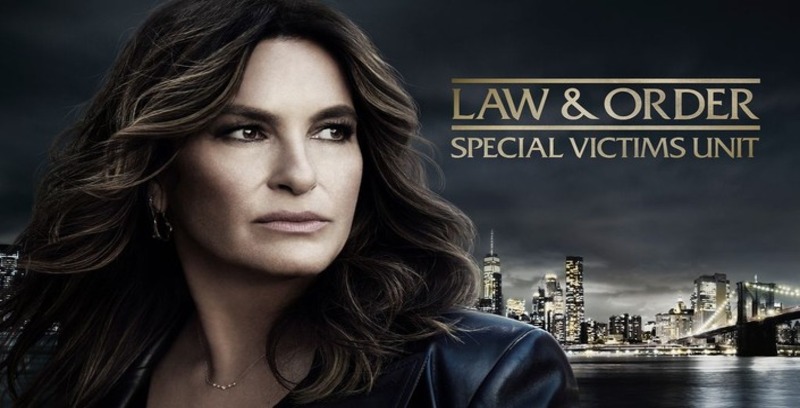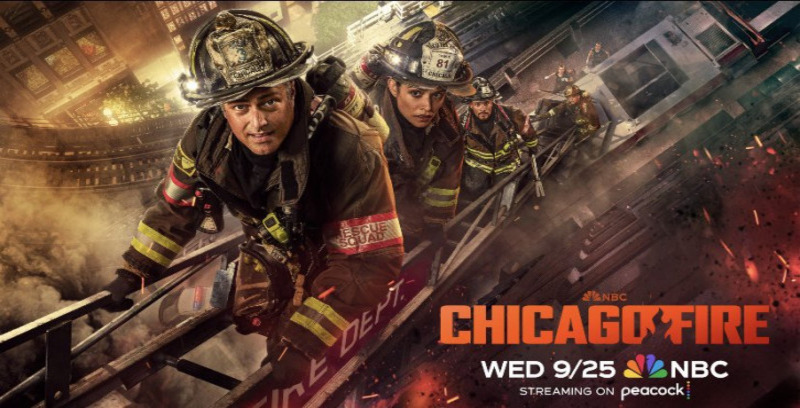New to Cinemax this season is period drama Quarry, starring Logan Marshall-Green and Jodi Balfour. Four episodes in, the series has been well received, and holds a solid 8.4 rating on IMDb. I put a few questions to composer Kris Dirksen, concerning the series, his work on Banshee, which ended earlier this year, and the industry he works in. Here's what he has to say:
1. If Banshee would have gotten a Season 5, what would you have liked to see happen?
I definitely respected Tropper’s decision to end the show after the fourth season on his own terms rather than push it and have the story potentially wear thin. That said, I think there could have been some cool spinoffs, possibly an Odd Couple-style show about Job and Sugar? Burton started off as a minor character but really came to the forefront in later seasons due to Matthew Rauch’s great performance. We were given a small glimpse into Burton’s past but it felt like there was still room for exploration with that character. One of my favorite moments in the show is the scene in season two with Burton cleaning a crime scene in a motel room, set to the sound of an opera.
2. What was your favorite Banshee episode to score and why?
Episode 205 The Truth About Unicorns was a fairly big departure for the show at the time in terms of both the visuals and music. The director, Babak Najafi, created a very ethereal, dream-like world and I enjoyed getting to lean into that element with the score and expand on Carrie and Lucas’s theme. There was fairly minimal dialog relative to television standards, so there was a lot of space for the music to come to the forefront. As a whole the episode was a significant creative risk for the show and I think there was some concern by the producers and network that we wouldn’t be able to pull it off, given that most of the music had been fairly dark and aggressive up to that point. I think there was a collective sigh of relief when the score was handed in and I hadn’t completely messed it up!
3. What was the most challenging part of scoring Banshee?
It was probably the sheer breadth of the characters and storylines that needed to be addressed musically. The show could switch from a contained, intimate human drama sound to an over-the-top, five minute long action sequence at the drop of a hat so it kept me on my toes. While that could be a challenge, it also was a blessing in that it never became boring and I was always being pushed in new directions.
4. Whenever you are scoring something very intense like Siobhan’s death, do the showrunner’s have a lot of input on what the sound should be or is it more up to you?
Greg Yaitanes (Banshee’s showrunner) always had input on what his intentions were with the music and what tones or emotions it should invoke. After he gave his initial general direction he was always very hands off and left the ball in my court to take it where I saw fit. There was a great degree of trust and very little micro-managing when it came to the score which is definitely not the norm in that world. I don’t think there were more than a few revision notes per season and very rarely did I have a score cue completely thrown out. The Siobhan sequence was actually very subtle in terms of its use of music, the visuals were so intense that I really tried to just stay out of the way with the score and not distract.
 5. When you first began scoring Quarry, how did you figure out what the show’s sound was going to be?
5. When you first began scoring Quarry, how did you figure out what the show’s sound was going to be?
Initially, the network wanted to take a very modern approach with the score rather than it being too retro or pastiche. I had just finished scoring four seasons of Banshee which was a fairly modern, hybrid score and though it felt like tonally Quarry would be in the same realm I didn’t want to repeat myself. The Knick, with its killer score by Cliff Martinez, had juxtaposed modern score with a period setting very effectively and I didn’t want to just copy that approach. It felt like in a post-Drive and Social Network world the synth-driven score approach was getting a little long in the tooth and less interesting. Memphis in the early ‘70s was such a rich place in the history of music that it seemed criminal to completely ignore that element.
6. Quarry takes place in the 70s, did that affect the way you scored the show at all? Meaning did you reframe from using modern instruments or programs?
I took what I’ve come to think of as a “time machine” approach to the score. What would it sound like if you sent me back to a studio in ’72 Memphis and asked me to try and create a modern score similar to my work on Banshee? I’m still going to sound like myself but put through the filter of the gear of the era. To that end I spent a lot of time researching the gear and recording techniques of the era, and specifically what they used in Memphis at places like Stax, Ardent and Royal Studios. The soul music coming out of the city at the time wasn’t always gritty, but the recordings tended to have a dirty sonic quality relative to their northern Motown contemporaries that I liked and wanted to replicate. You can almost feel the sweat and the mud of the Mississippi and I tried to imbue the score with some of that murkiness.
I started collecting old gear like an Ampex tape machine, Hammond organ, Leslie speaker, Mellotron, Wurlitzer, tape delays, spring reverbs and other vintage effects and instruments in an attempt to create a reasonable facsimile of the tools of the day. I was originally trying to stay away from synths but I ended up picking up a Buchla Music Easel and a clone of an Arp 2600, and started to get inspired by the sound of early electronic music. Both of those synths have a life of their own, you can just turn them on and they lead you in directions you don’t always expect. I wasn’t a complete purist and still incorporated some modern pieces of gear into the equation but that initial analog-driven approach really informed the process and gave me a set of limitations to work within.
7. Which Quarry character do you most enjoy scoring for and why?
Unlike Banshee’s many characters and storylines, Quarry has a very Mac-centric focus. One of the first scenes I scored for the show was from the end of the pilot, where Mac tails Cliff back to his house. The cue had a very dark, muted quality that informed much of the score. I tried to be restrained but still give a sense of the tension bubbling underneath the surface.
8. Quarry is based on books by Max Allan Collins. Did you read the books before you started the show? If not, what type of research did you do to prepare?
I actually haven’t had a chance to check out the books yet, I don’t recall getting or reading many of the scripts prior to starting so it was a matter of diving into the material with an unbiased perspective. My homework was focused more on the music aspect and I really enjoyed digging deep into that world.
9. Since you started out, what do you think are the biggest changes that the film and television industry has experienced from your point of view as a composer?
At least on the television front, there is so much content being produced that it seems like it’s getting tougher to cut through the noise. As TV viewers we’re spoiled for choice to the point that it's almost impossible to keep up with all of the great content coming out and it seems like a lot of quality work gets lost in the shuffle as a result. It seems like the most important thing at this point for composers, and other creators in general, is to attempt to bring a unique voice to the table.
10. To finish up, what are the most challenging, and the most rewarding parts of your job?
As the gap between film and TV diminishes the expectations about the quality of TV scores continues to rise, but the amount of time we’re being given to work on an episode hasn’t changed. A film composer might have a couple of months to create the score for a 90 minute movie, whereas we often only get a week, and sometimes less, for a 60 minute episode of TV. It’s always a challenge to meet that deadline and often you feel like your ideas are only partially realized, but you quickly move on to the next one and there generally isn’t time to dwell.
That said, my job is a reward unto itself. I get to sit in a room, surrounded by a ton of great instruments and make music all day, and someone actually pays me to do that. Rough life!
That's all from Kris. Our thanks for his generosity in sharing such detailed answers with us. You can follow him on Twitter @krisdirksen and check out his website - krisdirksen.com. Let us know what you thought of his answers in the comments below, and as always, thanks for reading!
Sign Up for the SpoilerTV Newsletter where we talk all things TV!
Recommendations
Subscribe to:
Post Comments (Atom)














